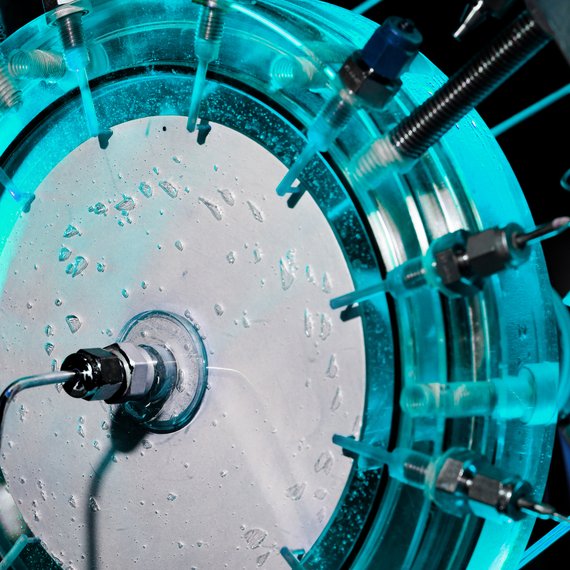Date
Friday May 17, 2024 from 12:00 PM to 1:00 PMLocation
Online | MS TeamsPrice
Free
You are warmly invited to join this 55th online EIRES Lunch lecture scheduled as follows:
Date
Friday 17 May 2024
Time
12h00-13h00 CET
Topic
The energy transition: a human-centered perspective towards tipping
Speaker
Claudia R. Binder | EPFL
Organized by
Floor Alkemade
Christina Papadimitriou
Introduction
We address three core aspects in energy transitions and tipping towards sustainability. First, enabling conditions for change: what is the role of external boundary conditions and events in triggering and reducing the energy for change? How flexible are consumers in their technology use given changes in their environment? Second, drivers and barriers of change: what are the triggers and barriers of technology adoption (PV)? How do adopters differ among themselves and how do they differ from potential and unlikely adopters? What role does technology co-adoption play? Third, connectivity and social norms: how do social networks affect technology adoption? When do they stabilize a transition process?
About the speaker
Claudia R. Binder is full professor and head of the laboratory for Human-Environment Relations in Urban Systems (HERUS) at EPFL. PhD in environmental sciences and venia legendi in Human- Environment Systems, ETHZ, Switzerland. 2006-2009: Assistant professor for Social and Industrial Ecology, UniZurich; 2009-2011: Full professor for Systems Sciences, UniGraz, Austria; 2011-2016: Full professor for Human Environment Relations, LMU, Munich.
Claudias research interests lie in analyzing, modeling and assessing transitions of urban systems towards sustainability. In doing so, she develops inter-and transdisciplinary methods which are able to depict the key aspects of the technical and the social systems as well as the relations, feedbacks, and regulatory mechanisms between them. Her current research aims on developing transformation knowledge for a transition towards sustainablity. Thereby she aims at simulating transitions pathways and identifying, simulating, and monitoring pathways towards positive tipping.
Format
Online | MS Teams
Speaker & Organizers
FULL ABSTRACT
The energy transition: a human-centered perspective towards tipping
Claudia R. Binder, EPFL
In collaboration with:
Matteo Barsanti, Dr. Mert Duygan, Dr. Maria Anna Hecher, and Gloria Serra-Coch
The current climate, energy and societal crises have shown that we need new tools for designing measures and strategies for achieving a more sustainable future. At the core of addressing the challenges is the energy transition. Scholars have found that the transition towards a low-carbon energy regime requires not only the development of new energy technologies but also deep-structural changes in society: these concern radical, systemic shifts in values and beliefs, in patterns of social behavior, and in governance regimes. Particularly, for designing transition pathways toward sustainability, the understanding of tipping points is crucial. Tipping points are defined as “the point where a small intervention leads to a large and long-term consequence for the evolution of a complex system, profoundly altering its mode of operation.”. When surpassing a tipping point, both the structure and the dynamics of the system change, and strongly reinforcing feedback loops emerge which can amplify a small change, accelerating the transition towards a difficult-to-revert new system state.
We present results of three research projects related to three core aspects in energy transitions and tipping towards sustainability. First, enabling conditions for change: what is the role of external boundary conditions and events in triggering and reducing the energy for change? How flexible are consumers in their technology use given changes in their environment? Second, drivers and barriers of change: what are the triggers and barriers of technology adoption (PV)? How do adopters differ among themselves and how do they differ from potential and unlikely adopters? What role does technology co-adoption play? Third, connectivity and social norms: how do social networks affect technology adoption? When and how do they stabilize a transition process?
Our results show that actors cannot be treated as a homogenous group. In particular, (1) depending on socio-economic conditions, and personal attitudes, actors exhibit different energy consumption patterns and are willing to shift them in time given information on costs, renewable energy supply or demand peaks. (2) Co-adoption of energy technologies such as photovoltaics, heat pumps and electric vehicles, plays a significant role and should be considered when studying adoption patterns. (3) potential adopters differ from unlikely adopters with respect to various aspects related to information exchange, personal context, sociodemographic and psychosocial factors. This shows that indeed some adopter groups may be closer to adoption than others; and (4) the analysis of social networks of the technology suppliers and adopters shows the relevance of trust as a key element for fostering the transition. At the end, we address the question of how these insights relate to tipping in energy transition and present the need for further research.
TARGET AUDIENCE
EIRES Lunch lectures are open for anyone interested in the latest developments in energy storage and conversion. Different keynote speakers from academia and industry will present their views, solutions and outlooks on the topic. The lectures leave plenty of room for discussion. We value your input. Looking forward meeting you!
Queries & tips?
Follow us & connect
- LinkedIN and stay updated
- Twitter and discuss with us
- Visit EIRES and learn more
- Watch EIRES and get inspired
